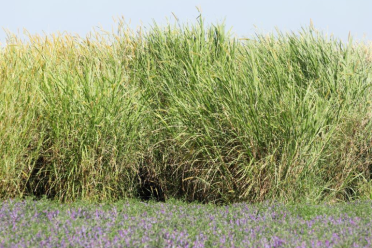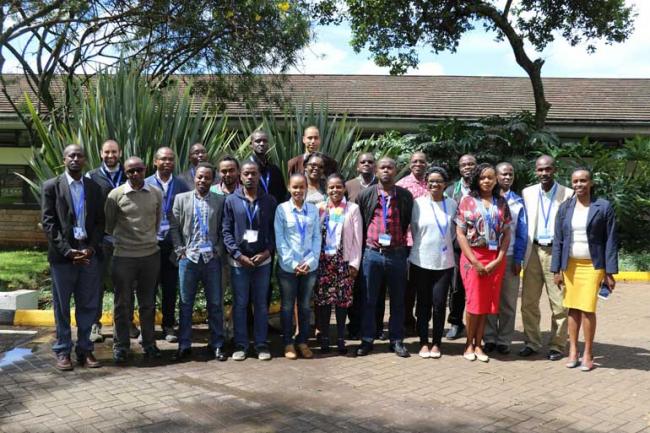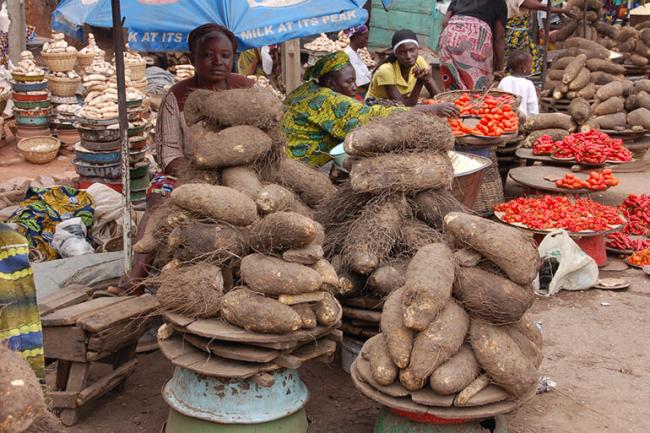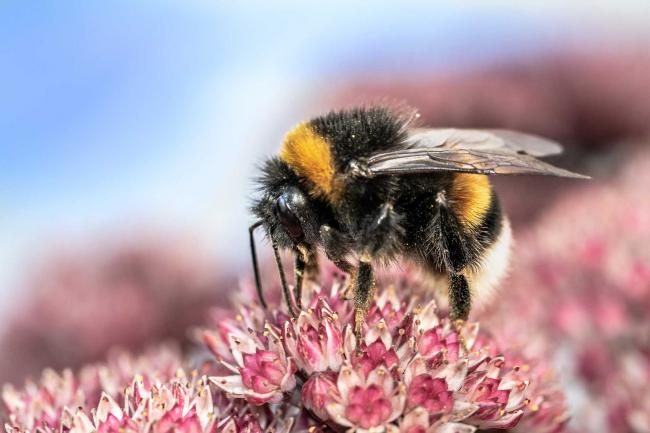
Image credit: Shawn Landersz, Crop Trust - supplied by Chris Jones, ILRI
Livestock is a vital resource in Sub Saharan Africa, where meat consumption is set to double between now and 2050. Among the benefits of this burgeoning industry are increased food security, better nutrition, and socioeconomic gains for the predominantly smallholder livestock farmers - many of whom currently straddle the global poverty line.
However, if meat production is to increase in line with demand then so must the quality and quantity of forage. Napier grass is a native forage crop that has great potential in this regard but currently lacks the variety or genetic resources that provide resilience against climate change and diseases such as Napier grass stunt.
Thanks to the award of a Royal Society Future Leaders - African Independent Research (FLAIR) Fellowship, Dr Abel Gari, who will lead a global collaboration between the International Livestock Research Institute (ILRI), Ethiopia and Kenya, Earlham Institute (EI), UK and Lanzhou University (LZU) China to help fast track the breeding of better varieties of Napier Grass.
Dr Gari, who will carry out his fellowship at the ILRI campus in Ethiopia, said: “Nearly 50% of smallholder livestock farmers in Sub Saharan Africa depend on Napier grass but, to date, those farmers mainly depend on a few landraces for cultivation.
This collaborative project, between researchers in Africa, UK and China, aims to translate bioscience research advances on cereals into Napier grass to develop new varieties with tangible benefits for smallholder livestock farmers in the region.”
Thanks to powerful next generation genome sequencing techniques, building a database of genetic information to inform breeding has never been easier. The first part of the project will see researchers sequence the full genome of 500 different varieties of Napier grass, each adapted to the different environments they were collected from. Along with this abundant data, the team will produce freely available online tools to mine the data for relevant agronomic traits that will be used by African national agricultural research institutes (NARS) to breed better varieties of Napier grass. Dr Jiyu Zhang of LZU will be sequencing the DNA of Napier Grass accessions with a view to deploying it as a fodder crop in Asia.
“By generating the right information and tools, we can help to rapidly select genotypes with improved performance under changing climatic conditions and disease pressure,” said Dr Jose De Vega, co-supervisor of the Fellowship and a Group Leader at Earlham Institute (EI). “This will go a long way in supporting the sustainable intensification of smallholder beef and dairy farming in Sub Saharan Africa."
More resilient, better quality and more productive varieties of Napier grass can improve the economic prospects for farmers working marginal land, and further still may lower the time and energy invested into farming, freeing up time for education and learning opportunities. For livestock farmers, a more productive forage will improve the amount of meat and dairy produced per animal, which would provide a welcome boost to income. Furthermore, for the millions of Sub Saharan Africans who suffer from malnutrition, an increased availability of animal products would provide a welcome boost of iron, B vitamins, and protein.





